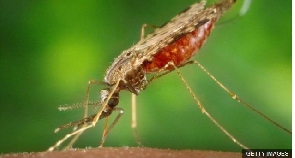 The NMCP is working to ensure proper accountability on malaria activities
The NMCP is working to ensure proper accountability on malaria activities
The National Malaria Control Programme (NMCP) has taken immediate steps to working closely with the Ministry of Local Government, Decentralisation and Rural Development (LGDRD) towards ensuring proper accountability of the 0.5% District Assembly Common Fund (DACF) allocation for malaria activities at the Districts.
This action comes after a report on a seeming misappropriation of the 0.5% DACF allocation by some Municipal and District Assemblies in the Eastern Region and other Assemblies in the country.
In Ghana, the District Assemblies Common Fund (DACF) is the formula-based system of financial transfers for local development from the Central Government. The Fund was created under Article 252 of the Constitution to serve as a mechanism for the transfers of resources from the Central Government to the MMDAs.
The Common Fund Secretariat developed guidelines for the utilisation of the District Assembly Common Fund on the allocation of 0.5% to promote efforts at eliminating malaria in Ghana but the MDAs are abusing the guidelines.
A survey conducted in 20 Metropolitan, Municipal and District Assemblies (MMDAs) in Ghana also confirmed that MMDAs are either not devoting or devoting very little of their budgetary allocations to fight malaria in the country.
Moved by this, the NMCP developed some suggested guidelines for the use of the 0.5% DACF allocation for malaria activities and thereon moved to work with the Local Government Ministry to guarantee proper utilization and accountability of the allocation by the District Assemblies.
Dr. Kezia Malm, the Programmes Manager for the NMCP, made this disclosure during a virtual Private Sector Roundtable Meeting as part of the Zero Malaria Starts with Me campaign to work towards eliminating malaria by 2030.
According to Dr. Malm, one of the key challenges facing the malaria elimination efforts in Ghana was the steady dwindling of donor funding, and that it had therefore become urgent for various sectors of the economy to ably support the efforts with various sources of local funding.
She also expressed that the effect of the COVID-19 pandemic and the competition for Government of Ghana (GOG) funding among others are greatly affecting the malaria elimination efforts thereby calling on, especially more private sector organizations to support the malaria control efforts.
“We have interventions which have proven to work but are not being implemented at optimum levels due to inadequate resources. We all have to put our hands on deck, both public and private because it(malaria) affects us all,” she stressed.
Dr. Keziah Malm expressed that even though efforts have been made to increase private sector contribution to at least 20% of the national gap for malaria financing from 2019 to 2023 and an increase in government financial allocation toward malaria control and elimination, “Malaria continues to be a disease of great public health importance in Ghana and more support is needed.”